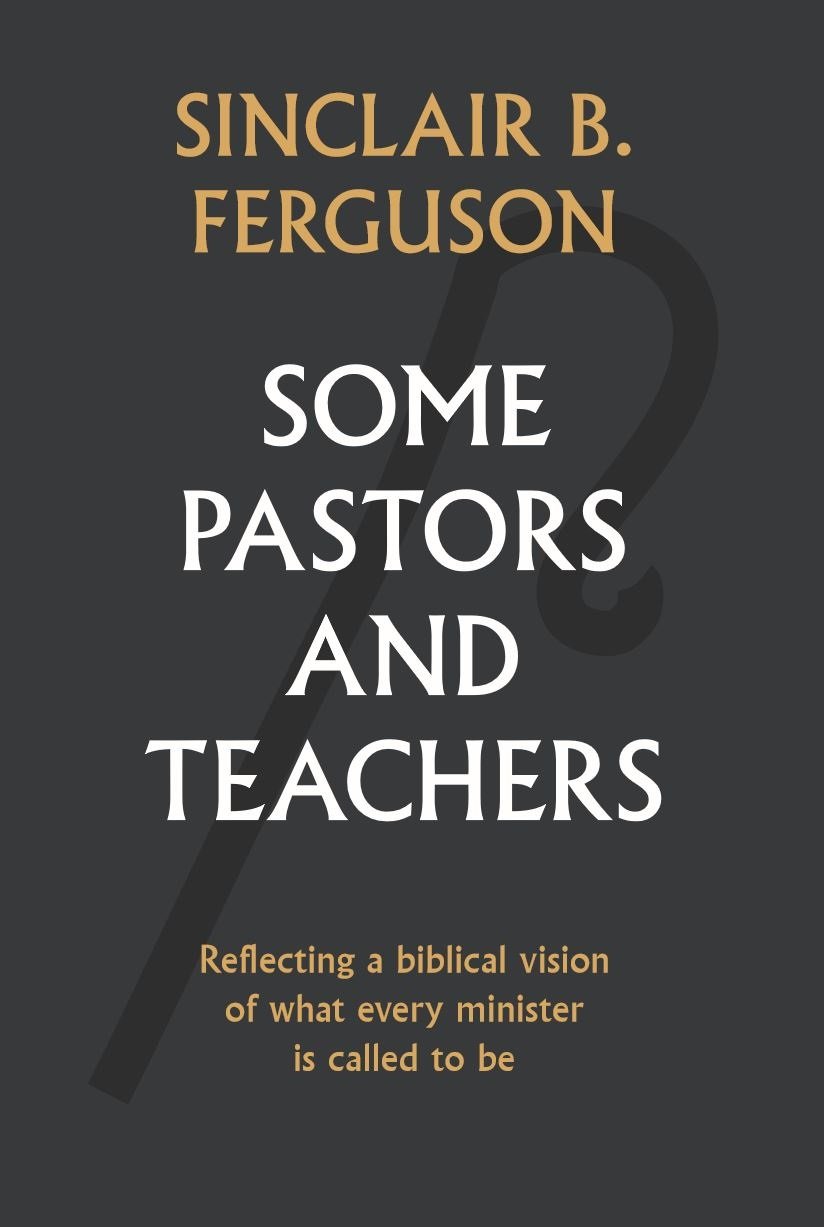Reviewed by Ryan M. McGraw
Most of the best books in the history of the church that have stood the test of time have come from the studies and prayerful labors of busy pastors. Calvin, Owen, Bunyan and a host of others have made us spiritually richer by taking the time to write and to publish throughout the course of arduous pastoral labors. Some Pastors and Teachers follows in this vein. It represents the work of an author who has labored in the ministry and in the training of ministers for decades. Here is profound pastoral theology by a working pastor that aims to show us the glory and beauty of Jesus Christ in everything that we think and do. This is a book for every Christian, but especially for those called into preaching ministry. It is a wealth of sound doctrine and biblical reflection that should drive us to worship the Triune God.
In light of the title and subtitle of this book, this reviewer expected it to be a large-scale pastoral theology. I discovered instead that it was actually the collected essays of Sinclair Ferguson. This volume takes many of the author’s essays from lesser-known publications and brings them together into a single volume. He has arranged the material thematically. Roughly one third of the book consists of historical essays, predominantly dedicated to John Calvin and to John Owen. The last two thirds of the work is divided between articles treating various theological themes and preaching. Motifs that recur consistently throughout the volume are the priority of Christology for Christian faith and life and the centrality of the doctrine of the Trinity to biblical devotion. Ferguson drives these ideas home to readers in ways that they may neither be looking for nor expect, which is precisely why they are needed to desperately in today’s church. Ferguson shows with driving force and contagious passion that Jesus Christ is the gospel and that union with him with respect to every aspect of his person and work is the key to every area of biblical doctrine and of Christian living. Whether in relation to his historical, doctrinal, or homiletical material, readers will understand more fully why Jesus Christ and the glory of the Triune God stand at the heart of the gospel. While the crises facing the church change in every age, these issues always will always stand at the heart and center of them all. Ferguson’s primary talent is to take standard theological emphases and to repackage and represent them in a way that is simultaneously profound, clear, simple, and accessible. These features give his work a timeless quality that is rare in modern Christian literature.
The section on preaching stood out to this reviewer as the best section in the book. Ferguson is less concerned with the mechanics of preaching as he is with what preaching is, what it should look like, why it is important, what it should do, and how it should spring from to devotion to Christ. His placement of the glory of the Savior at the center of preaching is the need of the hour for preachers and hearers in any era. He wrote by way of summary, “Preaching Christ must become instinctive, not formulaic.… Of course we need to work with general principles as we develop as preachers; but it is a far greater desideratum that we develop an instinctive mindset and, corresponding to that, such a passion for Jesus Christ himself that we find out way to him in a natural and realistic manner rather than a merely formulaic one” (670). His basic point is that preaching Christ should be inescapable because love for Christ is essential to the minister’s life as well as to his task. This is practical Christology at its best and Ferguson presses issues that both preachers and hearers need to revive in their hearts and lives.
Most solid Christian literature has come from the pen of pastors. One of Ferguson’s hopes in writing this volume is to push some of his fellow pastors to go and do likewise. While engaging in such labor will stretch anyone who tries to do it, Ferguson reminds us that,
Such stretching produces growth. Sometimes ministers can ‘waste’ the privileged time they have by studying only in relation to their next sermon. This does produce some growth, of course; but perhaps not the growth that is constantly putting down roots and producing richer fruit. Preachers need to be reading and studying more widely, and reflecting theologically if that is to be the case. For only then will our ongoing ministry be deepened and enriched. Thus, in one sense at least, the undergirding message of these diverse chapters is: if you are a preacher, accept invitations or create opportunities to study, speak, or write on subjects outside of your usual diet of preparation. Yes, you may find yourself under a little pressure; but pressure can produce diamonds (xii).
Some pastors will take up the author’s call and, with the Spirit’s blessing, the church may be better off for it. Every believer can benefit from Ferguson’s book, even if they don’t read it from cover to cover. All who take up Some Pastors and Teachers will be thankful for the time and money that they invested in it.
Ryan M. McGraw
Greenville Presbyterian Theological Seminary
Buy the books

Some Pastors and Teachers